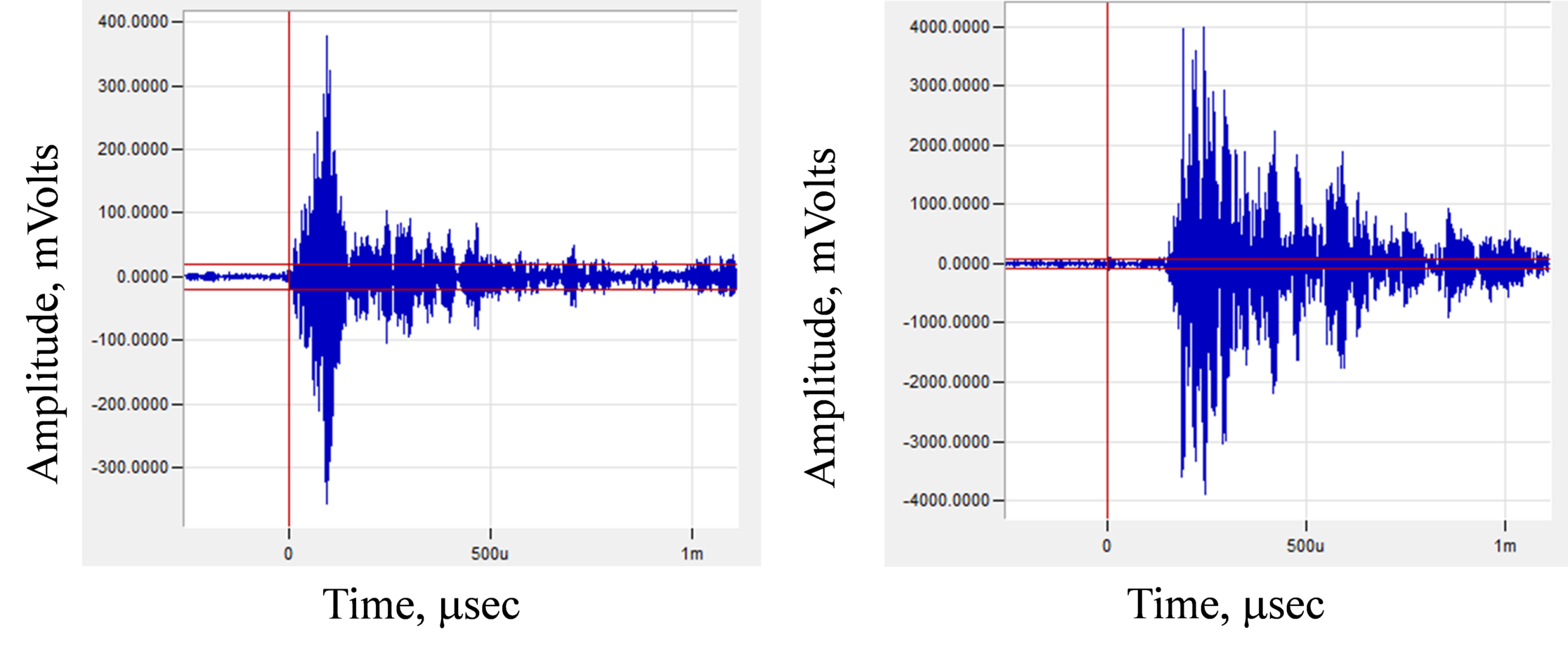
Acoustic Emission (AE)
Welcome to [NDT Inspection Portal]’s acoustic emission (AE) group, a place for professionals to... View more
Acoustic Emission Test Procedure Qualification
Acoustic Emission Test Procedure Qualification
AE: The current “standard” AE test procedure guided by ASME Art 12 for PV’s, Tank Wall, Piping were qualified once 25+ years ago and I do not know of anyone who has re-qualified the “standard” procedure since. The problem is AE is a qualitative assessment and back in the day everyone using AE understood that. Today there is increasing pressure for quantitative results. Unlike other NDT, there is no mention of specific damage mechanisms or defect size minimum detection etc. The experts involved in the Qualification process also understood the procedure was designed for the detection of Structurally Significant Defects yet for the life of me I can’t find it written down anywhere other than the MONPAC procedure. I would have hoped for a mention in the scope in Art 12. In the past 12-15 years I am witnessing clients (not mine because I communicate) who have not this understanding of what the AE test procedure is designed to detect. Clients are going out after an AE test and performing other NDT for an attempt to validate AE capability and are finding tons of defects which has led a decrease in confidence in AE capability. First of all, think about how many failures occur on a yearly basis, not many right? Well those failures represent what the standard AE test procedure was designed to detect for the prevention of failure. With the test sensitivity established in the “standard” AE test procedure only high energy critical defects carry a high probability for detection. STOP and think, AE operators have not communicated the deliverables of the AE product. Make sure they understand that only critical defects are probable.
@ NASA I showed that MONPAC does not qualify for LPV AE Testing so a modified test procedure was developed and demonstrated to achieve the desired results. AE service providers: Pre-project communications discuss the desired results. For example: you find out from the client the requirement for AE to detect “early stage” creep damage. Is your procedure adequate? No way no howso what should you do? Call your Level III ask him/her if they have data for amplitude readings released at the source for early stage creep damage. The data is not available what should you do? Inform the client that data is not available for confirmation of energy levels for early stage creep therefore we don’t know how much increase in test sensitivity is required and we don’t have the AE ch’s anyway. Then explain the need for pricedure re-Qualification which unfortunately might include laboratory simulation and then trying to simulate in a live vessel. Listen I know this is overkill but we are being forced by the clients to have this correct knowledge to share and the client can decide. AR least they will not go behind you and find early creep damage after you leave. AE can detect early damage process and we need to start buying more AE channels, modify pricedure and qualify by demonstration.
If any service providers are reading this and would like to discuss, wyattphunter@gmail.com
The failure to communicate AE Procedure capability may have been stopped in purpose based on comments from clients in the past. Example: A NASA client said “finding a critical defect at that point is too late, AE is of no use to me”. I have a gut feeling that clients began to develop that opinion about using AE and the communication regarding structurally significant defects was phased out. So instead of rolling up your sleeves and modify the procedure to increase test sensitivity to raise probability of detecting early stage damage so that AE can provide the desired results of the client the leaders of AE choose to be silent and hope they’ll forget. Look I’m not reaching very far here, for clients to put forth such an effort as to spend money performing NDT after an AE test to justify continued use then they do not carry the understanding of current procedure designed capability. Note:If you are a service provider and you do not have a passion for it to the point that yiu’ll Just sit back and let die, pleas find something else to do…..,,
Log in to reply.